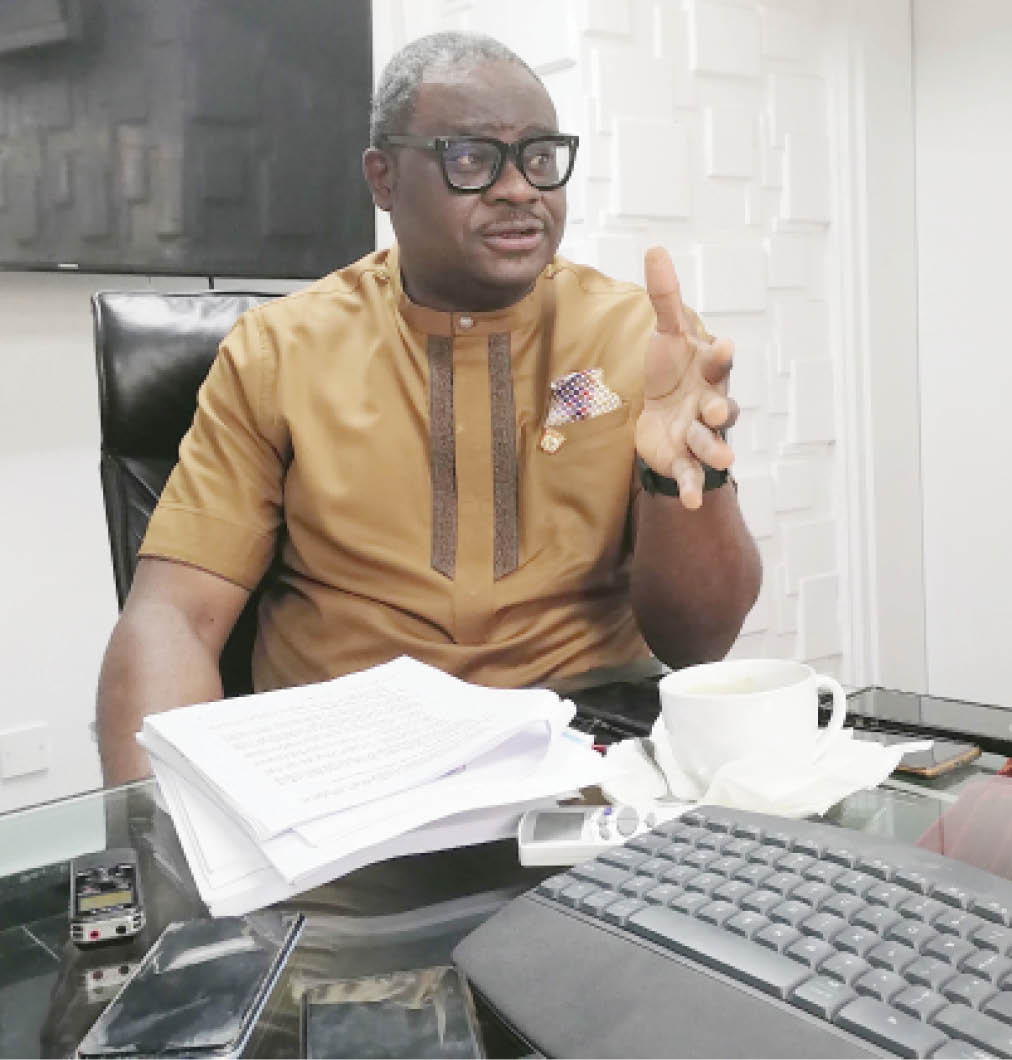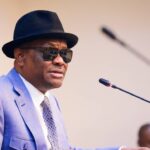Mr. Kola Adesina is the Group Managing Director, Sahara Power Group, the operator of Egbin Power and Ikeja Electric both in Lagos State. In this interview, the industry top player speaks about managing the assets in the last six years after privatization and the huge potential the sector holds for Nigeria’s sustainable growth.
What should power operators do for Nigerian consumers to enjoy constant power supply?
For everybody to have electricity in a stable, in a regular, in a productive manner, we require to generate, to transmit and distribute 26,000MW megawatts (MW) as at today. Now you go into the different alternatives of generating electricity, it is either you want to use the hydro or to use the thermal. You then go to transmission aspect and ask if there is transmission infrastructure to transmit 26,000MW. The answer of course is no! So, the question is how do you rapidly build a transmission infrastructure to be able to take 26,000MW from the various generating plants and ultimately take it to the Distribution Companies (DisCos)? At the DisCos level, you ask what is it that they require to take it to our various customers. It starts with the customer, it ends with the customer. Now that customer must be able to pay for that capacity he has received and once he pays, the entire value chain is able to be made whole again so that they can consistently continue to give power to everybody in that chain. So, there is a need for an integrated solution where everybody in the value chain truly comes up with their own requirement for success in order to make it work.
What about some consumers that can’t afford to pay cost reflective tariff?
There are different schools of thoughts regarding the capacity to pay. I have a very middle-of-the-road approach to it and incidentally at the point of privatisation, government equally had a similar view. What they did was that for those who can pay, government said they would give to those of us in the business a cost reflective tariff. But for those who can’t pay, there is a N100 billion power consumer fund to cushion the gap between what government expected from the lowest in the economic rung and what is required for them to pay, and government will pay that to the DisCos. Also, for those who say they can’t afford cost reflective tariff, you go to our homes today, you see generators, both diesel and petrol and you look at the cost of the acquisition of the generator, of paying for diesel and fuel, you will discover that it is so far more expensive than energy from the utility.
What should consumers do to ensure steady supply?
What is required really is that if you, (consumer) want steady electricity, pay for it, then hold us accountable for none performance. The current set of regulators, I must praise them for the Yeoman’s job they have done. They have done incredibly well, that is the current set of regulators. They can do better because that is where regulators now come in to say I have given you cost reflective tariff, you are charging that cost reflective tariff, this is the level of performance and supply I need to see. For failure, there are penalties and that is all. That is the way it works. But if you say that the meters should be provided first, it is going to come from somewhere. Now, the enabler required for metering has not being provided as yet, that is an appropriate pricing.
Recently the federal government unveiled an intervention for the power sector by Siemens. Did they get the DisCos’ buy-in before rolling it out?
I will want to salute the Federal Government for the Siemens initiative and the reason being that just like you rightly observed, it is meant to close the technical gap in the system. So, we are very much aligned with the government on the Siemens initiative. Government has signed a MoU and we are trying to activate it. The proposition from government is that it is going to be 60 – 40, government will take a loan and that government will pay their own 40% and they would expect that we would come up as a business to pay our own 60%. Some of the unaligned argument is simply put from our own side, is that government has been a shareholder for six years, we have not seen anything from government so when are we going to get that? So maybe this is part of what we need to use to close the gap.
Would you say the DisCos have performed better with the rise in customer population?
You probably would have observed in the last three weeks or so that the electricity has been bad. You know why? It is simply because of the gas constraint. The moment any generation company shuts down, like Egbin GenCo that is meant to be doing 1,320MW but is currently doing about 700MW or 600MW, the entire system feels it. Nigeria has not really operated at the full level we should on energy generation; it is not about us. Under our own canopy as private sector, Nigeria moved from 3,000MW to 5,700MW and it is the same private sector that is being vilified. When we took over Ikeja DisCo, we were receiving 280MW and 300MW of power. Today we are receiving close to 700MW, so invariably we are selling more power than we were selling in 2013. However the population is increasing and the infrastructure is decaying, arising from the fact that investment required to make the system work has not being triggered because of inappropriate pricing.
The privatization model was copied from New Delhi. What have they done differently to succeed?
I implore that customers understand and be patient with us. We are Nigerians and not foreigners and we paid 135 million dollars to acquire these assets. The New Delhi model is not a model that just happened over night, it took 13 years for that to transform the society and now it is being celebrated. Government sat us down last year and they asked us to come up with a Performance Improvement Plan (PIP). So DisCos drew up their PIPs and submitted; government and the World Bank is auditing that.
Can’t Ikeja DisCo do integrated projects to improve power supply?
We have a dedicated power arrangement through collaboration with the Lagos State Government. Governor Babajide Sanwo-Olu has been so instrumental in helping us push the dedicated power and it is not limited to Magodo, Ikeja GRA. We are going to spread it round the entire state. He is also doing the same thing with Eko DisCo. If we are able to cure weaknesses in the power sector, we will have uninterrupted supply similar to that of New York, California, and so on.
What we are seeking as private sector is alignment with everybody: from the customer through the entire value chain and back to the customer and government. In two years, if we all work together, we can resolve this problem. The N1.7 trillion that government has put into the sector can become more visible if there is that alignment. I remembered that when Yola DisCo was turned back to the system, part of the message was that it will become better but it has become worse off. Today, Ikeja Electric is the best in the distribution business in terms of Aggregate Technical, Commercial and Collection (ATC&C) losses reduction. We met it at 49.4% in 2013; today we are at 24.1% ATC&C losses. Such an aggressive losses reduction has never happened anywhere else before in the world.
You have made some recommendations to government, what are they?
One of the things we did at Ikeja Electric was that we are the first to introduce e-bill in the sector. That first month, our revenue went down but I sat with the MD and said we are going to do something about that because we have a philosophy in Sahara Power Group and Sahara Energy and Ikeja Electric, and our entire assets, that continuous improvement programme is a way of life for us. On the PIP we have submitted, government has constituted a body that is reviewing it and we hope that by the middle of this year, we would have a signed on that PIP which is going to be for five years. We are also going to sign another PIP arrangement with NERC by June 2020. This one is flowing from the Power Sector Recovery Programme (PSRP). So we actually have a road map so the expectation is that government should play its part.

 Join Daily Trust WhatsApp Community For Quick Access To News and Happenings Around You.
Join Daily Trust WhatsApp Community For Quick Access To News and Happenings Around You.


